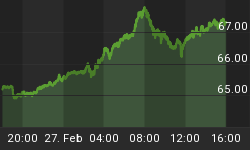The cryptocurrency community has been eagerly awaiting the approval of a Bitcoin ETF since early November, when U.S. regulatory agencies were supposed to officially announce a decision on a number of submissions that had been in the pipeline for months. And now, it appears that traders may have to wait a bit longer.
On Tuesday, SEC chief Jay Clayton voiced concerns over the security and legitimacy of Bitcoin and cryptocurrency exchanges at the Consensus Invest Conference in New York City, "What investors expect is that trading in the commodity that underlies that ETF makes sense and is free from the risk of manipulation," adding, "It's an issue that needs to be addressed before I would be comfortable.”
Tools of the Trade
Traditional exchanges have built-in safeguards to prevent manipulation. For instance, if a company was expecting major news or regulatory developments that would impact their business, trading of that particular stock may be halted briefly. Additionally, trading may be halted if a single stock’s price surged or dropped by more than 10 percent in less than a five-minute period.
Many exchanges also utilize sophisticated technology to receive early warnings on market manipulation and insider trading, allowing compliance teams to take action before significant damage is done. These features currently do not exist in the vast majority of cryptocurrency exchanges. Related: Tesla’s Chinese Sales Are Plummeting
Though these tools do not reign in the markets completely, they do offer a major leg up on manipulators that crypto exchanges need to embrace before being taken seriously, at least according to the SEC.
Security is Another Concern
Another major concern Jay Clayton mentioned was security, stating, “We’ve seen some thefts around digital assets that make you scratch your head.”
Clayton went on to say that reputable custody of assets was of significant importance, and despite major financial players such as Goldman Sachs, Fidelity, and more already entering the space, custody offerings need to be " improved and hardened."
Because cryptocurrencies exist in a different realm that true securities, however, ensuring the safety of digital assets to the satisfaction of regulators and naysayers may be an uphill battle.
In 2018 alone, there has been nearly $1 billion in cryptocurrencies stolen from consumers, startups and exchanges. This number is increasingly worrying, especially as cryptos fight tooth and claw for mainstream acceptance.
The SEC Does Not Speak With One Voice
Though Jay Clayton remains the big boss of the regulatory agency, not all high-level officers agree with him, keeping hope for a Bitcoin ETF alive and well.
Commissioner Hester Pierce, who made crypto-headlines after taking a stand against the rejection of the Wiklevoss ETF in July, voiced her opinion on crypto regulation in a recent podcast called “What Bitcoin Did.”
Related: How Central Banks Impact Gold Markets
Though Pierce stands firm on the regulatory front, she believes that Bitcoin, in particular, is ready for its chance in the sun, disagreeing with the SEC’s stance that the asset was not “ripe enough, respectable enough, or regulated enough to be worthy of our markets.”
Despite her support for a Bitcoin ETF, however, she did voice concern over the crypto-market at large, noting, “Just because you are calling something Crypto does not mean you can ignore the rules we have had in place for years… but I do think we also need to be willing to open the doors a little bit wider for innovation.”
Conclusion
Though the idea of an approved Bitcoin ETF may be shelved for now, it’s clear there is progress being made.
Regulatory authorities are being particularly cautious, but not outright dismissing the idea, which can be seen as a positive thing for the community as a whole.
Of course, these hurdles will have critics who will suggest that traditional markets are far from what the SEC envisions for crypto markets, but in the end, that could give this new tech an edge, ultimately ushering in a new era of finance.
One thing is clear, however, for better or worse, the crypto space needs to clean up its act before it goes mainstream.
By Michael Kern via Crypto Insider
More Top Reads From Safehaven.com:
















